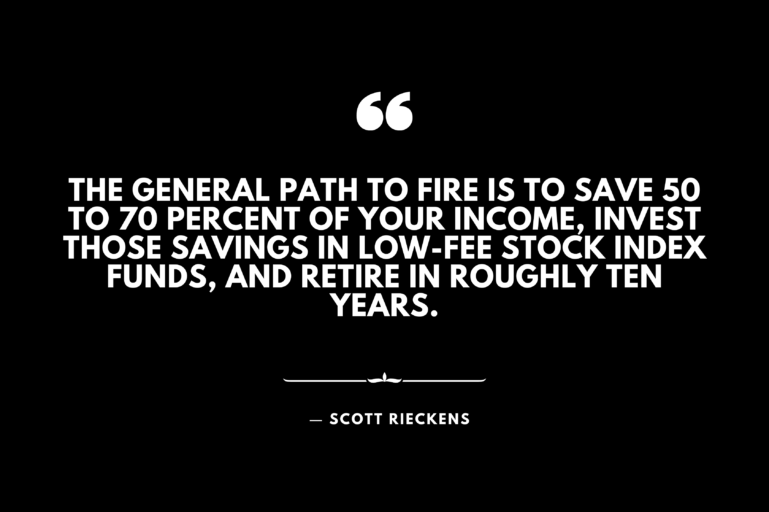Last updated on October 3, 2023
Most traders and investors are more worried about the price they pay than the value they get. But when it comes to the “price vs value” debate, what you get (value) is far more important than what you give (price).
I’m not a long-term investor in the sense that I will buy stock in a company and hold it for all eternity. I’m a long-term investor in the sense that I will not take a cent out of my investment portfolio for years to come (if ever). As a matter of fact, I keep adding to it every single month.
What you'll learn:
⓵ Why invest for the long run?
Because:
- Compound interest work wonders in helping you grow a big-enough nest egg to retire early if you wish.
- My main concern is to have something to leave behind to the next generation. (This is long-term investing in my opinion, not a 3-5-year time horizon.)
- I just love the process and the side effects besides money.

Some suggest buying companies and holding them for 3-5 years in order to give time for things to play out. And also, to give enough time if an overall market correction comes.
⓶ When do you sell?
Personally, I start cutting once a company is no longer performing at its optimal. And, of course, for some this might be too short-term thinking. But to me it’s just holding the best companies — not forever — but for as long as they are the best.
What about the companies that just went public? How can you know in a simple Q if they fit into those criteria? Well, you can’t. Because the track record is not there.
So, you either need to have specific criteria for each and every Q until they have a somewhat long track record to make your judgment easier or stay out until then.
Personally, I don’t wait for a long track record, but I will take a small position compared to my usual ones and track each and every Q. If one Q came below my expectations, I wouldn’t say let’s give it some more time because it’s a newly listed company when there are other options out there.
If that company fits those criteria at a later stage, you can revisit. There’s nothing stopping you. This is not a once-a-no, always-a-no situation.
However, you’ll see as the companies grow bigger and bigger the growth — percentage-wise (not in absolute numbers) — becomes stagnant, slows down, or even falls off a cliff in some cases.
⓷ How do you monitor a company’s performance?
Every Q (quarter) starts a game (or race if you are into that). The game is about who’s gonna do better until next Q (when the companies will report results once again).
Not in the next decade. Not in the next 5 years. Not even in the next year.
Because I don’t know what parameters to use to come up with a plan for the next 3-5 years.
You can try discounted cash flows, you can try coming up with your own estimates, you can do whatever, you can follow analysts, listen to fake gurus (furus), or read the stars while singing Kumbaya.
The point is none of that matters if the next Q is out of whack. And yes, if it’s below expectations it doesn’t mean it’s bad. But it’s bad enough to send the stock skydiving without a parachute.
⓸ Why stocks get punished on worse-than-expected earnings?
Because we live in the here and now. And we want things to play out now. Not in a year. And certainly not in the next decade or in a different universe. A simple Q is a simple Q but think of it this way.
You have a team of 10 employees (companies). And you want to assign work (weight in your portfolio) to them. At the end of Q1 they all come and say here’s what we’ve done in the last Q:
1-5: we did this many tasks (delivered this much revenue). And we even did more than (accelerated) the amount of work done (percentage wise) in previous Q (QoQ growth).
6-9: we did as good as the previous Q (steady QoQ growth).
10: I fell behind this Q (slowing down). But it was because of this and that reason. I’m sure I can reaccelerate the next Q. Or even worse, I expect this to keep going for a couple more Qs.
⓹ When do you adjust your stock portfolio?
- Keep everything as is?
- Promote anyone?
- Fire anyone?
- Replace anyone?
- Adjust responsibilities?
These are the questions I ask myself every single Q.
And in the above example, I would promote the first 1-5 employees by giving them more responsibilities (increasing weight), keeping the next 6-9 the same, and probably reducing responsibilities or even firing number 10 until he/she proves that reacceleration is there.
And reassess then. Because if he/she made the error once, how can I know it won’t be done again?
And that’s the beauty of the stock market. You get to do what you think it’s best for your portfolio.
⓺ What should you expect from a company’s earnings report?
And this was all done while the rest employees performed/executed really well and even above expectations. And make no mistake expectations are not simply what the guidance is from the company.
Expectations are set by what people believe they should be. Companies indirectly condition us into what we should be expecting. Not what the guidance is.
For example, if a company constantly beats their own guidance by 10% and then suddenly beats it by 1-2% then it is obvious that there is something wrong. Yes, it could be that they had better visibility into that specific Q or whatever.
But the general idea is this: The trend of the performance of the company leaves clues. And the market listens. Closely.
Take the above example again, if employee no10 usually outperformed and then suddenly slowed down then it must be an important reason which as an investor I do not want to wait for him/her to figure out.
⓻ Is evaluation important when it comes to investing?
Evaluation is simply a number when everything goes well. And then a magical number when everything turns sour. Evaluation alone won’t get you anywhere.
“Cheap”! “Expensive”! Whatever.
This is how I treat evaluation: A company might be valued at whatever multiple. This alone won’t give you any info. That multiple might expand, contract according to a number of factors. Some are out of our control.
For this, if you base your thesis on evaluation there will be a time that you won’t get a good company or the best company.
In times like this, where companies across the board go on sale, it’s easy to say oh that company is now trading at 5x. So, it’s cheap. So, it’s a good investment. Not everything cheap is worth having.
In the above example, if the high performers wanted a raise, it would be justified. The worst performer would deserve a haircut. And that is how I believe the market reacts too.
⓼ A fair price for a good company is better than a cheap price for a bad company
Also, if something is cut in half doesn’t make it twice as attractive. Conviction doesn’t come with “the price” you buy something. Conviction comes with “what” you buy.
Of course, if you pay an enormous amount for a great company, you need to decide if that company is poised to do well for many Qs in a row in order to deserve that premium. Some of them do.
I could go on and say that because of the cut in evaluation in many names that whichever you pick it will be a good investment.
But who knows?
The point is to feel good when you go to sleep. If you simply buy something based on price, will you be as comfortable as when you buy something of value (and don’t confuse value investing here)?
If you are investing you are essentially putting your money away for now in order to see it increase in value at a later stage. In order to do so, companies need to deliver great results. If you simply buy a mediocre company for a lot less.
It doesn’t necessarily mean that the company will do well. It might do poorly and then your cheaply priced company will be worth even less.

⓽ Investor vs owner
As an investor, you need to remember that you are not buying the entire company even if it is good to think of it that way.
Because if a company turns a profit and you were the sole owner, you’d get that profit. But in reality, as a stakeholder, you won’t see a penny out of the company (unless it pays a dividend, which most companies discussed here do not).
So, an investor will benefit from the growth of the company. The market sometimes gets excited by newly listed companies and might push the price too high too soon (and this is usually the best time to increase your investment if you can find them early on).
But if a company keeps growing at a decent level for years, its price action will most probably do just that.
⓾ Opportunities come and go
The reason some companies go from a darling to ex is simply because there are some better companies. It’s difficult for any company to be the best forever. And I know some might invest by searching for the best company that will still be around in 10 years or whatever.
But unless you are an insider you can never have complete control and knowledge of what a company is doing. So, you follow the numbers, listen to what they say and what they do. If that matches, then all is good. If not, well you do what you got to do.
Trying to maximize returns involves greater risk you might say. True, if done wrong. But the true risk comes by not taking advantage of this digital era where we get so much more visibility into what a company is doing compared to let’s say 20-30 years ago.
Every investor makes mistakes. So take calculated risk and protect your capital. The goal is to stay invested and stay in the game. And not to burn your portfolio overnight.



